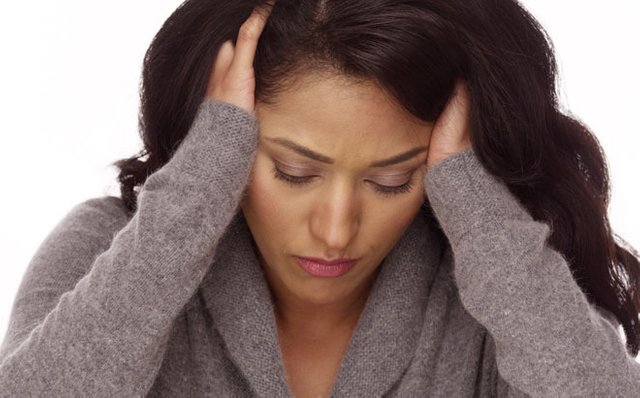
Depression and Anxiety are painful. Yes, you read that right. Most people who think of Depression or Anxiety ~ think of people who live in their sweatpants, sleep on the couch all day, are in a dark place, may be contemplating suicide...Yes, in many cases, that may be true.
But Anxiety is painful even in the seemingly healthiest of bodies.

Some people may have aches and pains from sore muscles, joints or knots. Head and neck tension, headaches, backaches, arthritis, etc. The truth is, if you're body has these issues, THAT may lead you to Anxiety and Depression.
Anxiety and Depression are mental health conditions. And carry numerous physical symptoms. Most people know about nausea and muscle tension, but few people realize that anxiety can actually cause or contribute to intense, chronic pain.
Because the effects of anxiety in the body often show up in a number of the body's systems, pain tends to be a bothersome part of anxiety disorders. The relationship between anxiety and pain can manifest itself in a number of the tell-tale signs of anxiety attacks.

The most common ways in which Anxiety and Pain surface.
Cardiovascular Effects of Anxiety on the Body
An increase in blood flow and heart rate, as well as the strength of the heartbeat. This manifests as a result of the activity in the sympathetic nervous system caused by anxiety and panic attacks. This results in more blood being moved to larger muscles like the biceps and thighs. Palpitations are common as well as sweating, swollen throat / choking. You may also feel as if you are having a heat attack.
Nervous Effects of Anxiety on the Body
When our brain perceives or anticipates danger it sends a message to the autonomic nervous system. Within this system lies the sympathetic nervous system (the 'fight/flight system'). It releases adrenaline and prepares the body for action. The effects of anxiety on the body cause this mechanism to be more active than necessary which can cause one to frequently be paranoid, nervous, shaky, jumpy or jittery. You may feel a heightened sense of awareness with this new built in alarm system.
Respiratory Effects of Anxiety on the Body
This manifests as a rise in the depth and speed of the breathing rate. When the 'fight/flight' mechanism is activated, the respiratory system sends more oxygen to the body's tissues in order to help prepare one to defend themselves or flee. The respiratory effects of anxiety on the body often cause one to hyperventilate or fatigue. Getting dizzy or light headed.

Causes of Anxiety Include:
Stress
Traumatic life experiences
Thyroid problems
Dysfunctional serotonin
Excessive alcohol
Caffeine or sugar intake
Hormone imbalance
Disorders Leading to Anxiety Attacks:
Social Anxiety Disorder
Panic Disorder
Post-Traumatic Stress Disorder
Generalized Anxiety Disorder
Obsessive-Compulsive Disorder
Mood Disorder
Personality Disorder

Take the Test:
If you are unsure at what level you're anxiety is, but agree that these symptoms can be and are painful to live with, take the test.
The Beck Anxiety Inventory A test designed to quickly determine the severity of anxiety in patients and help to distinguish common anxiety from other mental disorders.
It was especially formulated to differentiate anxiety from depression by measuring signs of anxiety attacks shared in small amounts with those of depression. The Beck Anxiety Inventory addresses both the cognitive and psychological components of anxiety.
Research shows that risk factors for anxiety disorders include being female, experiencing stressful life events in childhood and adulthood, having a family history of mental health disorders, having limited economic resources and being shy in childhood.
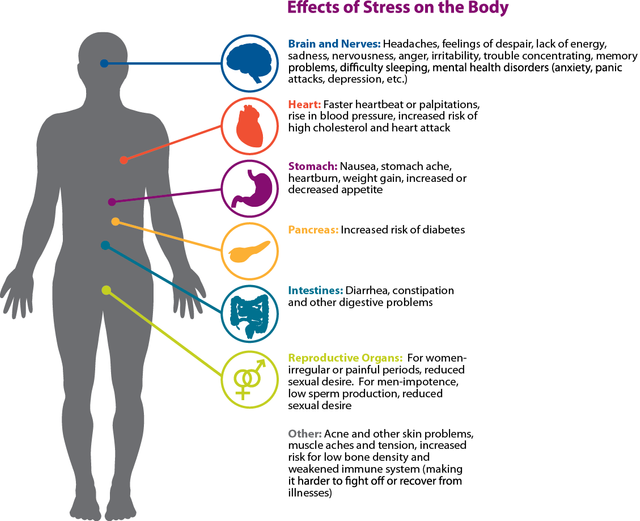
If you suffer from any of these symptoms and are searching for answers, discuss your physical and psychological symptoms with your Doctor.
excessive worrying and tension
nervousness
panic attacks
irritability
difficulty concentrating
restlessness
sweating
anxiousness
inability to socialize
muscle tension
chest tightness
heart palpitations
high blood pressure
insomnia
digestive problems
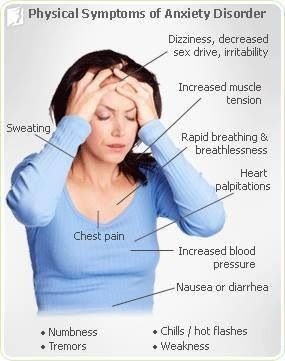
Occasional anxiety is an expected part of life. You might feel anxious when faced with a problem at work, before taking a test, or before making an important decision. But anxiety disorders involve more than temporary worry or fear. For a person with an anxiety disorder, the anxiety does not go away. General anxiety disorder ( GAD ) affects 6.8 million adults, or 3.1% of the U.S. population, yet only 43.2% are receiving treatment. Women are twice as likely to be affected as men.
Here are 50+ Ways to Reduce Anxiety
Top 50 All Natural Remedies for Anxiety

Breathe / Meditate:
Take long deep breaths. Breathe out slowly. The key is to focus on your out-breath and ignore your in-breath. Your in-breath will naturally lengthen when your out-breath is longer.
**Address Diet:
A diet rich in whole grains, vegetables, and fruits is a healthier option than eating a lot of simple carbohydrates found in processed foods. When you eat is also important. Don’t skip meals. Doing so may result in drops in blood sugar that cause you to feel jittery, which may worsen underlying anxiety. Avoid alcohol, caffeine, nicotine and drugs. The gut-brain axis is also very important, since a large percentage (about 95%) of serotonin receptors are found in the lining of the gut. Research is examining the potential of probiotics for treating both anxiety and depression.
Do a Cleanse:
Some leading-edge researchers believe that anxiety is actually symptomatic of an overgrowth of Candida—or more specifically, the more than 80 poisonous toxins it produces in the body. They point to this toxic waste as the main cause of anxiety, especially in chronically ill people. These toxins can mimic and interfere with many of the body’s hormones, such as adrenaline, and when this happens, feelings of intense anxiety can be induced. Start with 1 tsp Apple Cider Vinegar a day for one week.
Address Issues with Others / Self:
Find and resolve the underlying causes of your Anxiety. Is it school, work, finances? Locate the issue, then address it.
Journal / Write:
Start a jounal. Write your feelings. Review your progress. Studies have shown this is therapeutic.
Balance your Chakra:
Anxiety is Not All in Your Mind; It’s in Your Chakras The Root chakra is our survival chakra. It holds our fears about finances, housing, career, and even possessions. When this chakra is congested with fears and worries, we can experience overwhelming anxiety and that feeling that we are in danger.
Correct Sleep:
Sleep is absolutely vital for bodily repair, cognitive function, and general all-round health. That's a no- brainer. It's generally recommended that we get eight hours of sleep a night – but for those suffering from anxiety, that's not something that comes so easy.
Exercise:
Exercise reduces levels of the body's stress hormones, such as adrenaline and cortisol. It also stimulates the production of endorphins, chemicals in the brain that are the body's natural painkillers and mood elevators.
Nature / Sunlight:
Get outside. Take a walk. The fresh air, sunlight and grass underneath your toes will do you good. It is beneficial for people with anxiety. Sunlight increases the brains release of the hormone serotonin. Touch some dirt. Some recent research has added another missing piece to the puzzle, a touch of dirt to skin delivers a strain of bacterium from soil, Mycobacterium vaccae, has been found to trigger the release of seratonin, which in turn elevates mood and decreases anxiety.
Heat:
You may feel sweaty or quite the opposite - chilly. Turn up the heater or take a long hot bath. If you have ever noticed that you tend to get sleepy when it’s really warm out, then you already understand the powerful effect that temperature can have on our nervous system and our muscles. Sensations of warmth have been shown to actually change the way that the brain works. By altering the way that our brains connections work, being warm can actually rewire us to feel happier. This is also a factor that contributes to seasonal depressive disorder
Get a Pet:
Find a new friend. Pets are warm and furry. They listen to your problems. They know when something is wrong. They offer up cuddles and kisses. Pets have a relaxing effect. Petting or stroking an animal can improve your mood. Touch helps increase oxytocin levels and reduces cortisol, the infamous stress-related hormone.
Music Therapy:
Music therapy has been found to help many conditions, including anxiety. Listening to music can help make us feel relaxed and at ease. Since Ancient Greek times, music has been used to heal the mind and body. In Native American culture, there are more than 1,500 songs that are used for healing purposes. Music therapy has been used with military populations for some time. During both World War I and II, music therapy was used for veterans who were suffering from emotional and physical trauma.Music therapy is a type of expressive therapy that involves a large variety of music-related activities, such as singing, improvising, moving, playing musical instruments, and listening to music. Music therapy has been shown to have positive physical, social, and psychological effects. So, put on that old CD you love, maybe you'll finally fall asleep!
Volunteer:
Take your mind off yourself and do something unselfish. Help someone else. Volunteer in your community. It will give you an ego boost and your heart some pleasure.
Sex:
Sex relieves stress and depression. Sexual activity relaxes the nervous, respiratory, and circulatory systems. Stress spikes blood pressure, but when you have sex, you release feel-good hormones, including oxytocin.
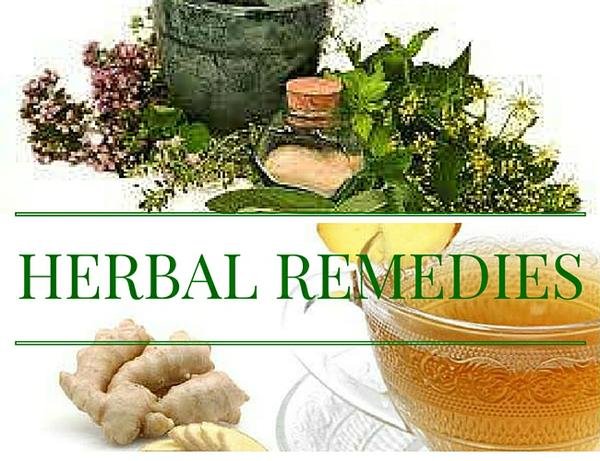
**Addressing your Diet Naturally
Rosemary:
Rosemary, and its essential oils, can be used as a fairly powerful form of anxiety relief. Rosemary contains a compound known as rosmarino, which has shown potential as an anxiolytic. It’s best to use an extract of the herb if you’re going to experience any powerful effects.
Saffron:
Although it is one of the most expensive spices in the world, Dried saffron is composed of 65% carbohydrates, 6% fat, 11% protein and 12% water. In comparison to other spices or dried foods, the nutrient content of dried saffron shows richness in content of B vitamins and dietary minerals. In a serving of one tablespoon, manganese presents as 28% of the Daily Value. One limited meta-analysis concluded that saffron supplementation improved symptoms in people with major depressive disorders. Another review of preliminary human research indicated that it may have effects on mild to moderate depression and anxiety.
Chamomile:
Daisy-like flowers with polyphenol compounds, including apigenin, quercetin, patuletin, and luteolin. Essential oil components extracted from the flowers are terpenoids. Chemical compounds present within chamomile include numerous polyphenols which have calming effects.
Passion Flower:
Passion flower is a plant that has very useful properties to help us sleep better, relieve anxiety and reduce ailments arising in our nervous system.
Lavender:
Lavender is the oil distilled from the lavender’s deep blue, tightly clustered flowers. Oil distilled for therapeutic use comes from the botanical species Lavandula angustifolia and Lavandula officinalis. Lavender is a soothing and uplifting oil that can help reduce stress, anxiety, insomnia and depression.
Valerian:
Valerian root increases the amount of a chemical called gamma aminobutyric acid (GABA) in the brain. GABA helps regulate nerve cells and calms anxiety.
Dandelion:
Dandelion is optimal for detoxifying hydrogen peroxide in the brain and promoting a healthy nervous system function. It can promote calm and well-being simply by providing your body with a much-needed mineral boost.
Lemon Balm:
Lemon balm is a perennial herb in the mint family. essential oils from the leaves have been used for the treatment of disorders of the gastrointestinal tract, nervous system, liver, and bile. It is also used as a sleep aid.
Calamus:
Calamus (Acorus calamus) is a tall green monocot of flowering grass. It is a popular plant with many names including beewort, bitter pepper root, flag root, gladdon, myrtle flag, sweet flag, sweet sedge and others. The effects of calamus root both energize and reduce anxiety thus why it is considered a powerful balancing herb. It has been used for healing, spiritual, and culinary uses.
Motherwort:
As the name suggests, motherwort has a calming energy like a big hug from mom. As a bitter member of the mint family, Motherwort has a long tradition of use in easing tension, anxiety, and as a supportive herb for women. Studies indicate motherwort may be beneficial in reducing depression and those who use motherwort report a greater sense of calm and well-being.
Skullcap:
Skullcap herb is an amazing plant for stress, tension, anxiety, nervousness and panic attacks.
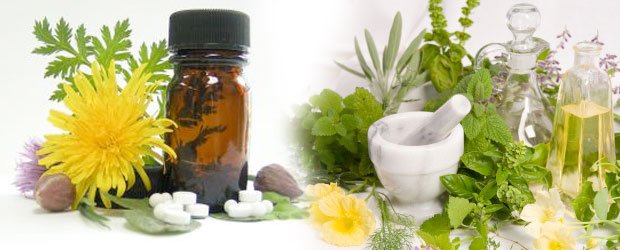
Ashwagandha / Brahmi:

Ashwagandha, a perennial shrub, is one of the most powerful herbs for helping people manage long-term anxiety. It is known to lower cortisol, which is the hormone associated with stress. It also functions as an adaptogen. In addition to altering the physical production of hormones in your body, it helps you adjust to stress. This means that, when used in the long-term, ashwagandha can help people manage stress problems that they have carried their entire lives. Brahmi (aka Bacopa), is used mostly in Ayurvedic combination with Ashwagandha, is known to increase memory and relieve stress naturally as the herb nourishes the neurons that in turn improve retention ability and to get rid of unwanted anxieties. The herb has soothing effects on the brain and therefore is used in treatments of depression and anxiety.
Rhodiola Rosea:
Rhodiola is a powerful adaptogenic herb. It is known to promote energy and reduce stress levels. Some people who are sensitive to rhodiola may find that it is actually too powerful to reduce their anxiety. If taken in very high doses, rhodiola can be an incredibly powerful source of energy. However, functioning as an adaptogen, it can help you reduce the impact that stress has on the body. Moderation is the key.
Gotu Kola:
Gotu kola, a perennial flowering plant, is one of the most powerful Ayurvedic herbs on the planet. Its health benefits are immense, and it can be used for everything from helping to heal wounds, to fighting illness, to fighting anxiety. Also known as Centella asiatica, the leaves of the plant have been employed for cognitive enhancement and mood relief. The plant, which is also known as Indian pennywort, can be used to alleviate depression and anxiety, while improving overall cognitive function. use in moderation as it causes drowsiness.
Kava Kava:
A bitter plant, kava kava extracts are found to provide anxiety relief and promote healthy sleep. Kava kava contains kavalactones which have been known to affect some neurotransmitters in the brain. These neurotransmitters include dopamine, nonrepineprine, and GABA or gamma aminobutyric acid.
Damiana:
Some people compare damiana to cannabis due to its relaxing and simultaneously stimulating effects. It contains a number of active ingredients that can positively impact functions of the endocrine and nervous systems. In herbal medicine, damiana is used to both relax the body and improve energy levels. Benefits associated with damiana herb (or damiana leaf) include: Increasing sexual desire and performance, while decreasing impotence, treating constipation, reducing depression, nervousness and anxiety, fighting PMS symptoms, muscle aches, insomnia, headaches and pain, improving digestive health and relieving constipation, fighting other conditions, including anemia, diabetes, respiratory infections, fungal diseases and skin disorders.
Shilajit:
"Mountain tar" a form of mountain resin that’s found in the Himalayan mountain. Researchers have noted that Shilajeet is unlike mineral tar seeps and is most likely of vegetable origin. The cactus like plant Euphorbia royleana has been observed growing near collection sites and is suggested as a likely origin as its gum has a similar composition. It is a complete package filled with minerals, antioxidants, and other essential nutrients. Using this all-natural substance can benefit you in many ways as it has anti-inflammatory, anti-anxiety, anti-ulcerogenic, anti-diabetic, anti-allergic, and anti-fungal properties.
St. Johns Wort:
St John’s Wort is one of the most popular herbs for treating anxiety and depression and probably the most well-known. It is actually used clinically in Germany to help people manage depression. Like kanna, St John’s Wort functions as an SSRI. However, its effects are not acute and it has to be taken for a few days to a few weeks for its effects sto really be observed. St John’s Wort can be useful for treating mild to moderate forms of depression.
Ginko Biloba:
Ginkgo Biloba, a tree, has health benefits includes fighting depression, anxiety and cognitive deficiency, accelerates cognitive functions, treat mental disorder, enhance eye sight, and improve blood circulation. Other benefits includes supporting heart health, and slowing down aging process.
Kratom:
Kratom, a tropical evergreen tree in the coffee family. The leaves are used to relieve musculoskeletal pain and increase energy, appetite, and sexual desire. The leaves or extracts from them have been used to heal wounds, treat coughs, diarrhea, intestinal infections, stave off exhaustion, mood enhancer, painkiller. Kratom is an effective method for relieving stress. The alkaloids in Kratom have a stringent effect on the mind and body. It calms and soothes the internal triggers that can cause anxious thoughts. In order to stress manage effectively, negative thoughts have to be eliminated or re-framed into a happier and positive situation. In Thailand, kratom is "used as a snack to receive guests and is part of the ritual worship of ancestors and gods".
CBD:
Cannabidiol, an extract found in the Cannabis plant, accounts for up to 40% of the plant's extract. Removing the addictive compound THC, scientific and anecdotal evidence shows that CBD has the ability to trigger the release of pleasure hormones that relax the mind. These hormones enhance the reduction of stress levels thereby causing a peaceful calm that is experienced throughout the body. In addition to relieving stress, CBD can help with other problems like anxiety and insomnia.
Terpenes:
The cannabis plant consists of a wide variety of chemicals and compounds. About 140 of these belong to a large class of aromatic organic hydrocarbons known as terpenes (pronounced tur-peens). You may have also heard people talk about terpenoids. Terpenes, basically the non addictive extracts of cannabis act on receptors and neurotransmitters; they are prone to combine with or dissolve in lipids or fats; they act as serotonin uptake inhibitors (similar to antidepressants like Prozac); they enhance norepinephrine activity (similar to tricyclic antidepressants like Elavil); they increase dopamine activity; and they augment GABA (the “downer” neurotransmitter that counters glutamate, the “upper”). Expansive research is being conducted to determine the medical benefits of marijuana and cannabis. Limonene, mycrene, and trans-nerolidol are three of the top terpenes for anxiety. Strains high in these medicinal gems will help keep your anxiety in check and your stress response down. The FDA has deemed terpenes safe to consume, making them federally legal in the United States. It might be a little confusing that some components of cannabis (like THC) are illegal, while other parts (like terpenes) are completely legal. In this case, it’s because terpenes are naturally produced.
Hops:
Flowers from the hop plant, are certainly good for relieving anxiety. Have a beer? While that's not necessarily one of the healthiest options, you can still experience some of the relaxing and anxiety-fighting effects by simply using hops, a sedative compound that can be consumed by making hops into tea.
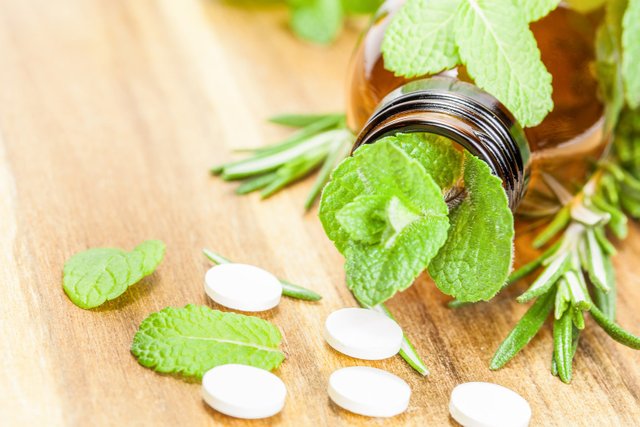
Phenibut:
Phenibut, an aromatic amino acid, is used by many as a nutritional supplement for treating anxiety, stress and insomnia. It is known to be one of the most remarkable natural compounds being used for those suffering with stress, anxiety attacks and panic disorders. Phenibut improves mood – because it is a derivative of GABA, if you are deficient in this brain chemical it will probably make you feel good or at least improve feelings of calmness. Phenibut enhances cognition – another reason phenibut stress relief is so powerful is because it improves your performance simply by reducing your stress. I'll share my 15% discount with you if you want to try it. Get Lift Mode Phenibut today.
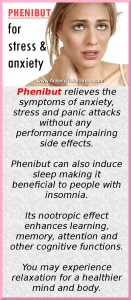
Mimosa:
Champagne and OJ? That may help for a brief minute, but no - from the legume family, mimosa is highly for centuries in traditional Chinese medicine as a botanical that can improve mood, wellbeing, decrease anxiety and bring a sense of peaceful calm, especially to those with a troubled heart and those who have experienced a great deal of stress and trauma.
Khanna:
Khanna, also known as sceletium tortuosum, is a powerful herb that grows in South Africa. It functions as a SSRI or a selective serotonin reuptake inhibitor, which is the same mechanism by which many popular antidepressants work. Khanna has a powerful acute effect on anxiety and energy. It is one of the interesting herbs that is able to boost energy by stimulating the brain and body while lowering anxiety at the same time.
Ginseng:
Ginseng regulates the release of adrenocorticotropic hormone (ACH) which is an adrenal steroid that increases the body's response to stress. The less you have this steroid in your blood, the harder it is for your body to response to stress.
Tryptophan:
Tryptophan is not only found in Turkey and Eggs but in you. Under common, everyday conditions of stress, our body is programmed to steal tryptophan away from the production of serotonin. The connection between tryptophan and serotonin explains why tryptophan supplementation has been found to help your own body reduce anxiety and alleviate stress.
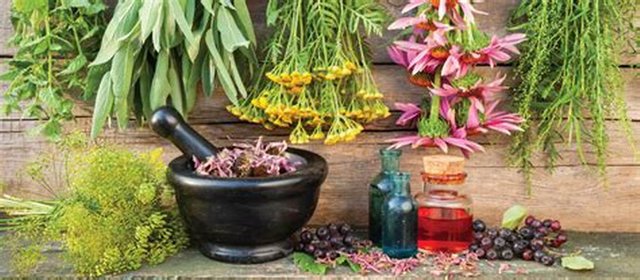
B Vitamins / Niacin:
B vitamins are known to be beneficial for people who are suffering from anxiety, stress and depression. These B vitamins work hand in hand with several neurotransmitters in helping people achieve emotional balance and calmness.
Magnesium / Zinc:
Magnesium plays a role in over 300 different chemical reactions in the body, and many studies have shown that a deficiency in magnesium contributes to several mental health problems, including anxiety. Stress levels affect magnesium. During periods of extreme stress, magnesium is often used up by the body. Combine that with the fact that processed foods eliminate magnesium from our diets, you'll find you are deficient. Magnesium is vital to every organ, including the heart, muscles, kidneys and bones. Zinc plays a key role in normal development and growth and keeps your immune system working optimally. Zinc deficiency can lead to symptoms of depression, ADHD, difficulties with learning and memory, seizures , aggression, and violence . Taken together, you will be sure to find relief.
L-Lysine:
An amino acid normally found in your body. Studies on L-lysine and anxiety primarily focus on deficits of the amino acid from your diet. Foods fortified with Lysine can reduce anxiety and stress in people whose diets are Lysine-deficient. This reflects the importance of the relationship between amino acid nutrition and mental health and more specifically, Lysine and stress. The amino acid Lysine is a vital building block for all protein in the body.
L-Theanine:
L-Theanine is an amino acid contained in green tea leaves which is known to block the binding of L-glutamic acid to glutamate receptors in the brain. Because the characteristics of L-Theanine suggest that it may influence psychological and physiological states under stress, the present study examined these possible effects in a laboratory setting using a mental arithmetic task as an acute stressor.
5-HTP:
Amino acid 5-HTP can reduce stress by improving mood. 5-Hydroxytryptophan (5-HTP) is a brain chemical needed to synthesize serotonin and melatonin. As a supplement, it may help with stress through: Elevating serotonin levels. Serotonin dysfunction has been linked to mood and anxiety disorders.
Omega 3 Fatty Acids:
It is well established that the omega-3 fatty acids known as DHA and EPA lower systemic inflammation, which can cause a wide range of chronic conditions including diabetes, cancer, dementia, and heart disease, but did you know they can also help with anxiety and stress? Lack of omega-3 fatty acid intake causes stress to rise. It impairs the brain from producing brain lipids that control synaptic memory known as endocannabinoids. This means that dietary omega-3 fatty acids, which modulate a person’s natural endocannabinoid production, can help alleviate anxiety. Many people report that a ketogenic diet increases mental clarity and vitality, and effectively reduces chronic depression and anxiety. People generally report significant weight loss when following a high good fat diet. The keto diet is a diet consisting of high fat, moderate protein, and low carb intake. Read more about the keto Diet and get Recipes here: Keto Diet Tips
There you have it. My list of research for the past 30 years. The list alone may make you feel overwhelmed and anxious, but take your time and apply only a few at a time. Do everything in moderation. Some remedies work great on some and not on others. Remember every body and every individual is unique in their needs (emotionally, mentally, dietarily and nutritionally).
If you want to learn specifically what Vitamins you are deficient in so you can address them, take the Strand Test
5Strands provides the most comprehensive Nutritional Deficiency testing system on the market. They test for over 115 of the most common amino acids, vitamins, & ionic minerals to let you know what your body needs NOW.
BUY:
How to Take these Suggestions. This list was put together to keep your efforts organic and all natural. So, either find them in supplement form, in essential oils or ground. They all can be taken / consumed in a number of ways – chewed, smoked, vaped, drunk or eaten. The choice is up to you. Start small, as you do not know the effect you will get and nausea and anxiety can be caused. (Many people get anxious just due to feelings of 'lack of control" over a new situation).
Be sure to check the 'purity" of all supplements and oils. Buy Food Grade.
Please check our Amazon store for relevant anxiety
products, share this post with a needing friend, bookmark or mention us if you found this article helpful in any way!
*These statements have not been evaluated by the Food and Drug Administration. These products are not intended to diagnose, treat, cure or prevent any disease.
*Consult your physician before beginning any new diet, supplement or exercise program.
Prior to using any products, Download the Facts from each site, take them to your physician for approval.
These products are different than supplements you may have tried and generally are more potent. These products are truly Standardized and have a powerful physiologic effect as formulated and recommended.
DO NOT assume that just because you purchased similar supplements in the past, they will have the same effect.
DO NOT experiment with dosages. Take only as directed under the supervision of a Physician.
We assume no responsibility for the improper use of and self-diagnosis and/or treatment using these products. Products should not be confused with prescription medicine. Products should not be used as a substitute for medically supervised therapy. If you suspect you suffer from clinical deficiencies, consult a licensed, qualified medical doctor. Do not use with alcohol or drugs. Take dosages in moderation.
It is especially important for people who are: pregnant or breast feeding, chronically ill, elderly, under 18, taking prescription or over-the-counter medicines. Certain supplements can boost blood levels of certain drugs to dangerous levels. None of the products or information available to the public are intended to be a treatment protocol for any disease state, but rather are offered to provide information and choices regarding nutritional support for various health concerns. None of the information is intended to be an enticement to purchase and may not be construed as medical advice or instruction.
No action should be taken solely on its content; regardless of the perceived scientific merit, instead readers should consult health care professionals on any matter related to their health. The information obtained from referenced materials are believed to be accurate, as presented by their respective authors, but we assume no liability for any personal interpretation. Readers, previous and future customers who fail to consult their Physicians prior to the purchase and subsequent use of any product, assume the risk of any adverse effects.
The use of any nutritional supplement for any reason, other than to increase dietary intake levels of specific nutrients, is neither, implied nor advocated by us.
All nutritional products are concentrated nutrients typically found in a well designed dietary profile and as such provide the body with recognized essential nutrients and other nutritional elements believed to benefit tissue building/repair and metabolic function.
Caution: Some of the herbal products contain phytochemicals that are not ordinarily found in typical food sources and may produce a powerful physiologic effect, therefore indiscriminant use of any herbal product is not recommended except under the direction of a trained health care professional. In addition to the phytochemical effect, there may be drug interactions that may produce reactions or interfere with the efficacy of prescription medication.
For any suspected or known illness or health concern, always consult with your physician or health care provider prior to the purchase or use of any nutritional product. We have attempted to present information from the literature, books and other references as well as information about our products as accurately as possible, but you should be aware that the Food and Drug Administration has not approved or evaluated all of the information contained in the literature or on this site. Any literature reference or direct link to a specific product is for your information or convenience and may not be construed as an enticement to purchase and further is not intended or implied to be used in the mitigation, diagnoses, treatment, cure, or prevention of any disease.
Legal Disclaimer Information on this site is provided for informational purposes only and is not meant to substitute for the advice provided by your own physician or other medical professional. The results reported may not necessarily occur in all individuals. We are providing this site and its contents on an "as is" basis and makes no representations or warranties of any kind with respect to this site or its contents. Except as specifically stated on this site, neither we nor any of our directors, employees or other representatives will be liable for damages arising out of or in connection with the use of this site. This is a comprehensive limitation of liability that applies to all damages of any kind, including (without limitation) compensatory, direct, indirect or consequential damages, loss of data, income or profit, loss of or damage to property and claims of third parties. *These statements have not been evaluated by the Food and Drug Administration. This product is not intended to diagnose, treat, cure, or prevent any disease.
References: Public Library and the world wide web
Posted from my blog with SteemPress : https://pookieshookies.com/top-50-all-natural-remedies-for-anxiety/